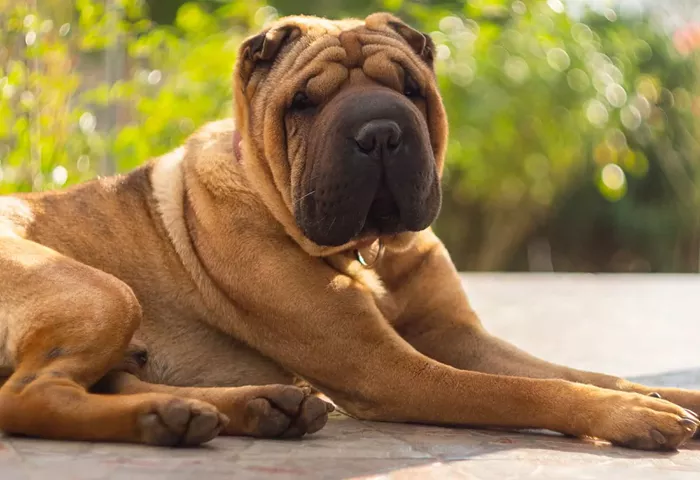Shar Peis are unique dogs with wrinkled skin and a calm demeanor. Many people find them fascinating, but are they good pets? The answer depends on your lifestyle, experience with dogs, and willingness to meet their needs. This article will explore their personality, care requirements, health issues, and suitability for families.
History of the Shar Pei
The Shar Pei originated in China over 2,000 years ago. They were originally bred for guarding, hunting, and fighting. Their loose, wrinkled skin helped protect them in fights by making it harder for opponents to grab them. Over time, their role shifted to companionship.
In the mid-20th century, the breed nearly went extinct. A few dedicated breeders saved them, and they gained popularity in the West. Today, Shar Peis are known more for their looks than their fighting past.
Shar Pei Temperament
Shar Peis are independent and loyal. They bond closely with their families but can be aloof with strangers. This makes them good watchdogs. However, their strong-willed nature means they need firm training.
They are not overly energetic but enjoy moderate exercise. A daily walk and some playtime are usually enough. Shar Peis can be good with children if raised with them, but their patience has limits. Supervision is important, especially with younger kids.
Care Requirements
Grooming Needs
Shar Peis have short but dense coats. They shed moderately, so weekly brushing helps. Their most demanding grooming need is skin care. The deep wrinkles can trap moisture, leading to infections. Regular cleaning with a damp cloth and thorough drying is essential.
Exercise
Shar Peis are not high-energy dogs, but they still need activity. A 30- to 60-minute walk daily keeps them healthy. Without enough exercise, they may become bored and develop bad habits like chewing.
Training
Early socialization is crucial. Shar Peis can be stubborn, so positive reinforcement works best. Harsh training methods will make them resistant. Consistency and patience are key.
Health Concerns
Shar Peis are prone to several health issues:
- Skin Problems: Their wrinkles need regular cleaning to prevent infections.
- Eye Conditions: Entropion (eyelids rolling inward) is common and may require surgery.
- Hip Dysplasia: A joint issue that can cause pain and mobility problems.
- Shar Pei Fever: A genetic condition causing periodic fever and swelling.
Regular vet check-ups help catch problems early. Good breeding practices also reduce health risks.
Are Shar Peis Good for First-Time Owners?
Shar Peis are not the best choice for first-time dog owners. Their strong personality and potential health issues require experience. A more easygoing breed might be better for beginners.
Living Conditions
Shar Peis adapt well to apartments if exercised properly. They prefer moderate climates—extreme heat or cold can bother them. A home with a small yard is ideal, but they don’t need large spaces.
Cost of Owning a Shar Pei
Shar Peis are not cheap. A well-bred puppy can cost 1,000to3,000. Ongoing expenses include:
- High-quality food
- Regular vet visits
- Grooming supplies
- Possible medical treatments
Pros and Cons of Owning a Shar Pei
Pros
- Loyal and protective
- Low to moderate exercise needs
- Unique appearance
- Good watchdog abilities
Cons
- Prone to health problems
- Needs consistent training
- Requires regular skin care
- Can be stubborn
Conclusion
Shar Peis make good pets for the right owners. They are loyal, calm, and protective. However, their grooming needs, health risks, and strong personality require commitment. If you’re willing to put in the effort, a Shar Pei can be a wonderful companion. But if you prefer an easygoing, low-maintenance dog, another breed might suit you better.
Before getting a Shar Pei, research breeders carefully. A healthy, well-socialized puppy will have fewer problems. Spend time with the breed to see if their personality matches your lifestyle. With proper care, a Shar Pei can be a loving and devoted family member for years to come.
Related topics:
What Is the Temperament of a Shar Pei?
How Often Should You Walk a Bernese Mountain Dog Puppy?


